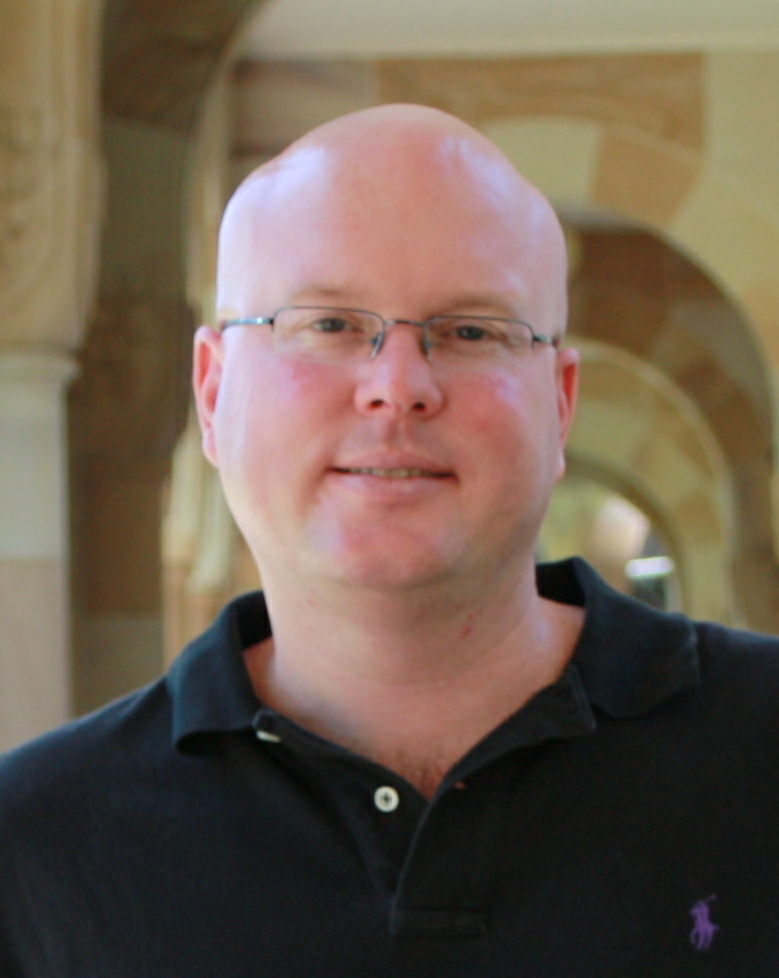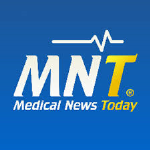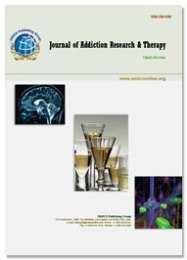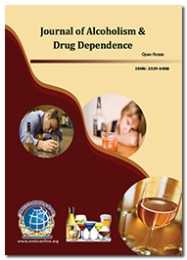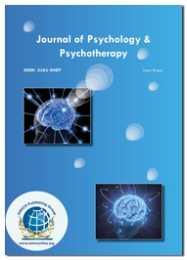Theme: Unifying the new discoveries and advanced approaches toward Addiction
Addiction Therapy 2015
On behalf of Addiction Therapy 2015 Organizing Committee, we invites addiction expertise, researchers, professors, scientific communities, therapists, counselors, delegates, students, business professionals and executives to attend the 7th International Conference on —Addictive Disorders and Alcoholism which is to be held on October 02-04, 2017 at Philadelphia, USA. Special interest and theme of the conference is “Unifying the new discoveries and advanced approaches toward Addiction''.
The Conference will encourage new discoveries and research by providing a platform for reporting of unique and unusual cases which enhance understanding of disease process, its diagnosis, management and clinico-pathologic correlations. It will provide a podium for wide-ranging aspects of psychological, neurological, molecular, genetic and behavioral pathways underlying addiction, and will focus on novel therapies providing quality care for people with unhealthy alcohol, tobacco, or other drug use and addictive behaviors across a spectrum of clinical settings.
The United States addiction pharmacotherapy market, currently valued at $2 billion, is expected to reach a value of $2.9 billion by 2012. Over 30 medications are in planning and testing stages to counter alcohol abuse and narcotic and nicotine dependencies. The 41% growth is expected as a result of increased demand for treatment medications that are more tolerable to people who are unable to tolerate currently available therapies.
Addiction Therapy-2015 focuses on the latest advancements in Addiction Rehabilitation and explained about various addiction sources making the audience to understand the alteration caused in human behavior and psychological activities by disorders like fetal alcoholic syndrome. This three day event provides a perfect platform for leading scientists, researchers, decision-makers and other players to gain the latest information on topics of current research like Addiction Genetics, Drug addiction and neurotoxicology and their significance in clinical research and health diagnostics.
The previous conferences on Addiction Research & Therapy (Addiction Therapy 2012, Addiction Therapy 2013 and Addiction Therapy 2014,) which were held at Las Vegas and Chicago, USA have explained new strategies and advanced therapeutic aspects in addiction treatment that have gained much interest from eminent scientists all over the world.
OMICS International organizes 300+ International Conferences Every Year across USA, Europe & Asia with support from 1000 more scientific Societies and publishes 400+ Open Access Journals which contains over 30000 eminent personalities, reputed scientists as editorial board members. For more....
Track 1: Addiction treatment and rehabilitation
Addiction treatment and rehabilitation involves various treatments and therapies. Substance abuse treatment comprises of Motivational therapy in which we encourage a patient to develop a negative view of their abuse, along with a desire to change their behavior. It is one of the important therapies included in Rehabilitation house treatment approaches. Social behavior in addiction can be treated by behavioral treatment approaches and drug induced addiction treatment. These all therapies are discussed in Addiction Therapy conference
Track 2: Alcoholism and substance abuse
Consumption of a substance in a manner or amount which is very harmful to the user and its surrounding is termed as substance abuse. This is one of the important topic discussed in many substance dependence symposiums. For many teens, illicit use of central stimulants such as khat, methamphetamine and dopamine become part of the landscape of their teenage years. Effect of substance abuse in adolescence is a very risky proposition. Similarly, problematic drinking of alcohol which leads to alcohol dependency is called alcoholism .In this dependency various psychological and clinical changes takes place in the human body including alcoholic liver diseases. This can be treated using various addiction therapy techniques. Women alcoholism during pregnancy may result in fetal alcohol syndrome which is a pattern of seviour physical and mental defects in the developing fetus.
Track 3: Drug addiction and neurotoxicology
Drug addiction is a brain disease that is characterized by compulsive drug seeking, despite of its harmful consequences. It causes changes in the normal activity of the nervous system damaging the nerve tissues, killing neurons and this leads to dysregulation of neural system as discussed in Addiction therapy conferences. Thus uncontrolled drug use results in toxicity of brain. Some of the behavioral effects of drug addiction include Paranoia, Aggressiveness, Impulsiveness, and Loss of Self-Control. Prescription drugs that are often abused are opioids, sleep medicines.
Track 4: Advanced Research Techniques in Addiction Treatment
Various advancements in addiction therapy techniques will help in providing quality care for people with unhealthy alcohol, tobacco, or other drug use. Among them Cognitive behavioral therapy is a form of psychotherapy designed to treat behavioral effects of substance abuse. The Behavioral Pharmacology Research is a substance abuse clinical research program encompassing both human laboratory research and outpatient treatment research. Neurorehabilitation and therapy offers complex medical process which aims to aid recovery from a nervous system injury due to addiction. 12 step recovery therapies involves an active engagement strategy designed to increase the likelihood of a substance abuser becoming affiliated with and actively involved in 12-step self-help groups, thereby promoting abstinence.It has long been an important part of the recovery process and the basis for many recovery programs and included in Addiction therapy conferences
Track 5: Addictions and addictives
Addiction is a condition that results when a person ingests a substance or engages in an activity that can be pleasurable but the continued use or act of which becomes compulsive and interferes with ordinary life responsibilities, such as work, health, and relationships. Most common type of addiction is drug addiction along with cocaine and gambling addiction and an important part of Addiction therapy conferences Tobacco and smoking addiction is mainly present in Asian & European countries.
Track 6: Neurogenetics of substance related disorders
Substance abuse causes alteration in the genetic structure and functions of nervous system which leads to various neurological and behavioral changes in the form of substance abuse disorders. For the treatment of substance related disorders it is necessary to understand the neurology of substance use through substance dependence symposiums
Track 7: Psychology and group therapies
For the appropriate diagnosis, evaluation, treatment, and support of the clients dealing with addiction it is necessary to understand addiction psychology and various psychological disorders related to addiction. Psychologists foster the application of information obtained from psychological behavior study to treat behavioral aspects of addiction. Hypnotherapy is also used to create subconscious change in a patient in the form of new responses, thoughts, attitudes, behaviors and feelings. Group therapy is also used in the case to assist patients in connecting with other patients on an emotional level. This process often helps in building bonds that provide patients with much-needed support once they leave the program. These all comprises the treatment house addiction therapy techniques
Track 8: Behavioral and multimedia addiction
Behavioral changes in human race occur due to various multimedia addictions which is becoming prominent in the daily life of the community. Among this, major is food addiction, caused due to binge eating habits and unscheduled meal sessions. Internet usage and gaming is most prominent in the young generation as they are always connected to the digital media sources to gain knowledge about the current activities all across the globe. Hence, living standards and habits changes to explore new trends in fashion world and lead them to be shopping addicts. More exposure and freeness in the society is increasing the concerns for serious involvement in pornography or other related sex addiction activities is also discussed in Addiction therapy conferences
Track 9: Reward deficiency syndrome and Animal models
Inability to produce or utilize "feel good" chemicals from serotonin and dopamine, to norepinephrine, GABA and endorphins is termed as Reward Deficiency Syndrome, an important part of Addiction Therapy conference .Neuroscientifically, when levels of these "feel good" chemicals are low or blocked from the brain's receptors it results in pain, discomfort and agitation. Reward deficiency is associated with mood instability, anxiety, hypersensitivity and irritability.
Track 10: Marijuana and opioid dependence
Marijuana and opioid addiction are the most common type of drug addiction. According to Addiction biology of marijuana, marijuana use can overstimulation the endocannabinoid system which causes changes in the brain. In order to minimize its effects control measures are taken. Opioid dependence characterized by a compulsive use of opioids. Opioid treatment measures include various maintenance therapies like pharmacologic therapy, methadone maintenance therapy and these are the important topics of discussed in most of the substance dependence symposiums
Drug addiction causes long lasting changes in the in vulnerable individuals. The persistence of these behavioral changes is due to long-lasting changes in gene expression in order to drive these lasting changes in gene expression epigenetic mechanisms play a very important role. Molecular addiction mechanism is used to understand the Regulation of gene expression by drug of abuse. From case studies and reports it is stated that Pain medicine can causes seviour addiction problem and it is a matter of public health concern and it is one of the critically important sessions related to Addiction therapy conferences
Track 12: Addiction psychiatry and mental health
Addiction Therapy conference covers Addiction psychiatry which focuses on the evaluation, diagnosis, and treatment of people who are suffering from one or more disorders and mental health issues related to addiction. Counseling and addiction treatment is very essential for such individuals. Due to latest advancement in technologies like Mobile health, now days it has become so easy for the people to get connected to health services and being updated with all the information. Rural and underserved communities often suffer from limited access to specialty treatment programs this can be overcome by Tele mental health. Online Recovery programs provide the opportunity for alcohol and drug addiction treatment by trained experts via the Internet, in a way that is convenient and private and these are the important topics to be discussed in sessions related to Addiction therapy conferences
Track 13: Yoga and retreat approaches
Yoga and retreat approaches have been designed to provide natural remedies, which inhibits the prolonged use of any substance. People who are mentally ill are prescribed to go with yoga as it restores brains dopamine functions and keeps stress out. Meditation brings the mid the state of rest, in which a human thinks of present. Dance and music therapies are given to people to bring a ray of hope inside them that they still can perform better than others. Retreat facilities provides special period of time for prayer, silence, rest, simplicity and contemplation and it is one of the important technique among various addiction therapy techniques .It is a way out from life’s daily stresses as well as an opportunity to deepen one’s experience of self and the universal energy that surrounds and supports us. Relapse offers a systematic method of teaching the abuser to recognize and manage relapse warning signs.
Track 14: Neurobiology and brain disorders
Chronic alcoholism and drug addiction adversely affect the normal neurobiology of nervous system, and causes brain disorders followed by memory loss and hormones instability. Alcohol related brain impairment (ARBI) is a type of brain damage that occurs to normal brain structures or function of the Central Nervous System as a result of the direct neurotoxic effects of alcohol intoxication and it is included in the sessions of substance dependence symposiums. Brain imaging studies of addictive substances using individuals show changes in areas of the brain that are critical to judgment, decision making, learning and memory, and behavior control.
Adi Jaffe
The Addiction Research and Therapy annual conference brings together some of the latest, most thought-provoking researches from around the world. It is a mélange of venerable researchers and clinicians from all corners of the globe who will be able to exchange ideas, share findings and discuss future collaborations. I have personally already begun working on a number of research projects envisaged and developed during my attendance in the last two conferences. I look forward to many more years of direct participation in the conference and the wonderful advances in my own research, and the broader international knowledge-base, that this conference will produce.
Adi Jaffe
Co-Founder & Executive Director
Alternatives Behavioral Health, LLC., USA
Bryan Yamamoto
As a member of the Organizing Committee for the 4th International Conference and Exhibition on Addiction Research and Therapy, I would like to invite you to share your expertise with the attendees of the meeting. The scientists and therapists at the meeting cover a broad range of expertise spanning basic science to clinical research and therapy. The meeting provides an outstanding opportunity to update the attendees on the latest cutting edge research and treatments that will drive future directions for basic, clinical and translational investigations. The format of the meeting fosters dynamic interactions among leading senior scientists, junior investigators and importantly, students from around the world in a relaxed and comfortable environment. I strongly encourage you to attend as you are an important part of the success of this and future meetings. The past meetings have generated much enthusiasm such that there has been a significant growth in the number of attendees at each of the past meetings. We look forward to your attendance and the opportunity to learn from you. Share the excitement with us!
Bryan Yamamoto
Professor and Chair, Neurosciences
College of Medicine and Life Sciences
University of Toledo, USA
Conference Highlights
- Addiction treatment and rehabilitation
- Alcoholism and Substance Abuse
- Drug addiction and neurotoxicology
- Advanced Research Techniques in Addiction Treatment
- Addictions and addictives
- Neurogenetics of substance related disorders
- Psychology and group therapies
- Behavioral and multimedia addiction
- Â Reward deficiency syndrome and Animal models
- Â Marijuana and opioid dependence
- Addiction medicine
- Addiction psychiatry and mental health
- Yoga and Retreat Approaches
- Neurobiology and brain disorders
To share your views and research, please click here to register for the Conference.
To Collaborate Scientific Professionals around the World
| Conference Date | August 03-05, 2015 | ||
| Sponsors & Exhibitors |
|
||
| Speaker Opportunity Closed | Day 1 | Day 2 | Day 3 |
| Poster Opportunity Closed | Click Here to View | ||
Useful Links
Special Issues
All accepted abstracts will be published in respective Our International Journals.
- Journal of Addiction Research & Therapy
- Journal of Alcoholism and Drug Dependence
- Journal of Psychology & Psychotherapy
Abstracts will be provided with Digital Object Identifier by








